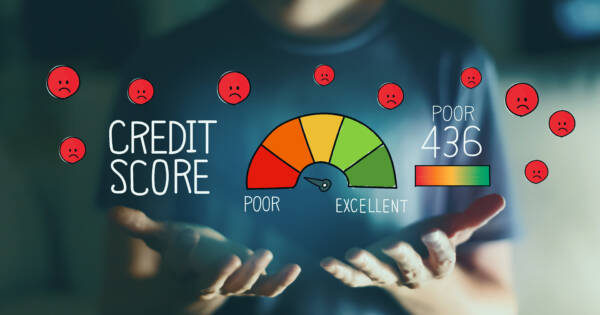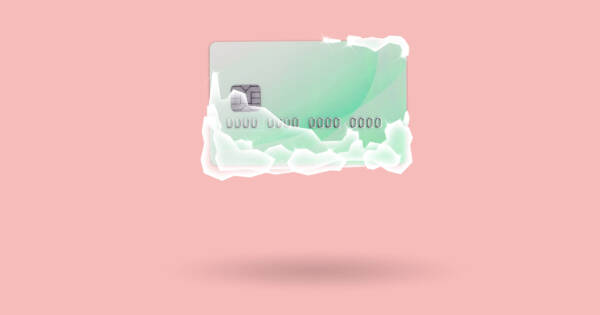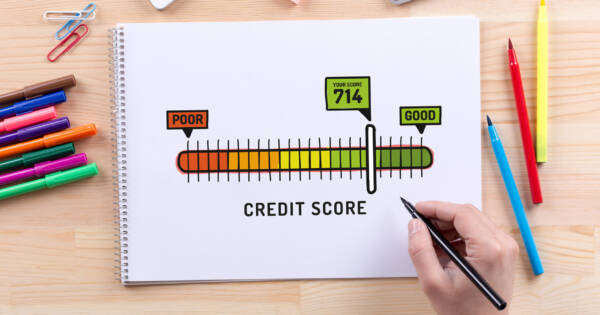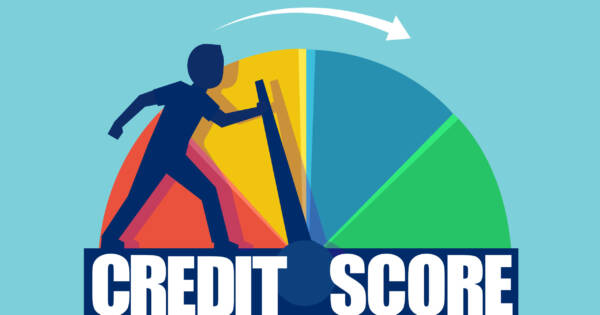Misinformation about personal finance is everywhere, and credit scores are among the most misunderstood topics. Despite ongoing efforts by financial institutions and regulators to clarify how credit scores and credit reports work, many people still feel confused or unsure about what affects their score or how to check it. That lack of understanding can hold you back from making informed decisions, securing favorable loan terms, or confidently managing your overall financial health.
Myth #1 – Checking Your Credit Report Will Damage Your Score
We’re not sure how this rumor started. Or why it persists, for that matter. However, the idea that simply checking your credit report will, in some way, damage your score is 100% untrue. Not only is this myth completely false, but consumers are actually encouraged to check their credit reports themselves. Do it at least once a year. Or more often, if you like.
You don’t need to worry. You can check your credit score or get your credit report as often as you want. It won’t hurt your credit score. Ever. Under the Fair Credit Reporting Act, everyone is entitled to get one credit report from each of the three national credit reporting agencies — Equifax, Experian, and TransUnion — every year, for free. That’s right, free. Not only does checking your credit report not hurt your credit score, it also won’t cost you any money. Considering both those points, there’s no good reason to not check your score.
Myth #2 – Canceling A Credit Card Improves Credit Score
There are many good reasons to cancel a credit card. However, boosting your credit score is not one of them. Like the rest of this list, this common misconception is complete hooey. Truth be told, the opposite is actually true. Closing a credit card will actually cause your credit score to drop in the short term. Don’t panic, though. It won’t do any long-term damage to your score.
Closing a credit card actually lowers your credit score for a few reasons. First, it might reduce the length of your credit history. It also increases your credit utilization — that is, the amount of available credit that you actively use. Both factors can (temporarily) hurt your credit score. Furthermore, it reduces your available access to credit.
Not to worry, though, your credit score will likely rebound in a couple of months after you cancel a card. However, getting rid of a credit card does nothing to boost your score. If you close a credit card, do it because you can’t resist the temptation to max it out. Or because you’re opening a new one with better rewards or lower interest. Don’t do it to improve your credit score.
Myth #3 – Your Job and Salary Are Included In Your Credit Report
Your employer is used for only a single thing on your credit report – to identify you. Your employer has the same function on your credit report as your name and address. It’s for identification purposes only. Where you work, your job title, or how long you’ve worked there have zero impact on your credit score. Similarly, your salary has no real impact on your credit score.
You can have a good or bad credit score, no matter how much money you earn. Remember that a credit score is a measure of how good you are at paying back your debts on time, consistently, and not overextending yourself. It has nothing to do with how much money you make. Rich folks can still make bad money decisions and end up with a bad score. Likewise, low-income earners can make good decisions and have a great score.
One caveat worth mentioning is that while your income won’t affect your credit score, it could impact your ability to borrow money. Banks tend to evaluate your salary when determining how much money you can afford to borrow. Your income levels are directly tied to your ability to repay the loan amount. However, that’s different from your actual credit score.
Myth #4 – You and Your Spouse Have One Credit Score
We’re really not sure why people think this. For some reason, many married couples assume that they have one credit score (and one credit report) between them. Kind of like how they share the same last name. Weird.
The truth is that every person retains their own individual credit score throughout their life. The three main credit reporting agencies do not mix the credit scores of married couples. Why? Well, imagine how much time and resources would be spent combining credit scores when people get married. And then uncoupling them if they get divorced. It’s not practical.
You may combine your finances after marriage. Common situations include buying a house together, opening joint bank accounts, or having joint ownership of cars. However, no matter how intertwined your finances become, you and your spouse will always have separate credit scores. It’s entirely possible for you to have a great score and your partner to have a poor one. Or vice versa. Those joint accounts will impact both of your credit scores. But they do remain separate.
Myth #5 – Your Employer Can Access Your Credit Report
This myth is a bit paranoid. Nevertheless, many people wrongly assume that their employer can access their credit report with ease. That’s not the case. You don’t have to worry about your employer or anyone at your place of work getting access to your credit score. In fact, the only way that your employer could see your credit report is if you give them permission. That would need to be provided in writing and verified with one or all of the three credit reporting agencies.
Even if you provide that permission, your employer would still only receive a limited version of your credit report. They wouldn’t see it in its entirety. Some potential employers might request a credit check when you apply for a job. You should absolutely ask why they need this information. It’s possible they want to know how trustworthy you are. Or how desperate you might be to steal from the company. If they can’t give a reason that satisfies you, feel free to politely decline. The bottom line is that you, and you alone, control your credit report and score. It’s for your eyes only








